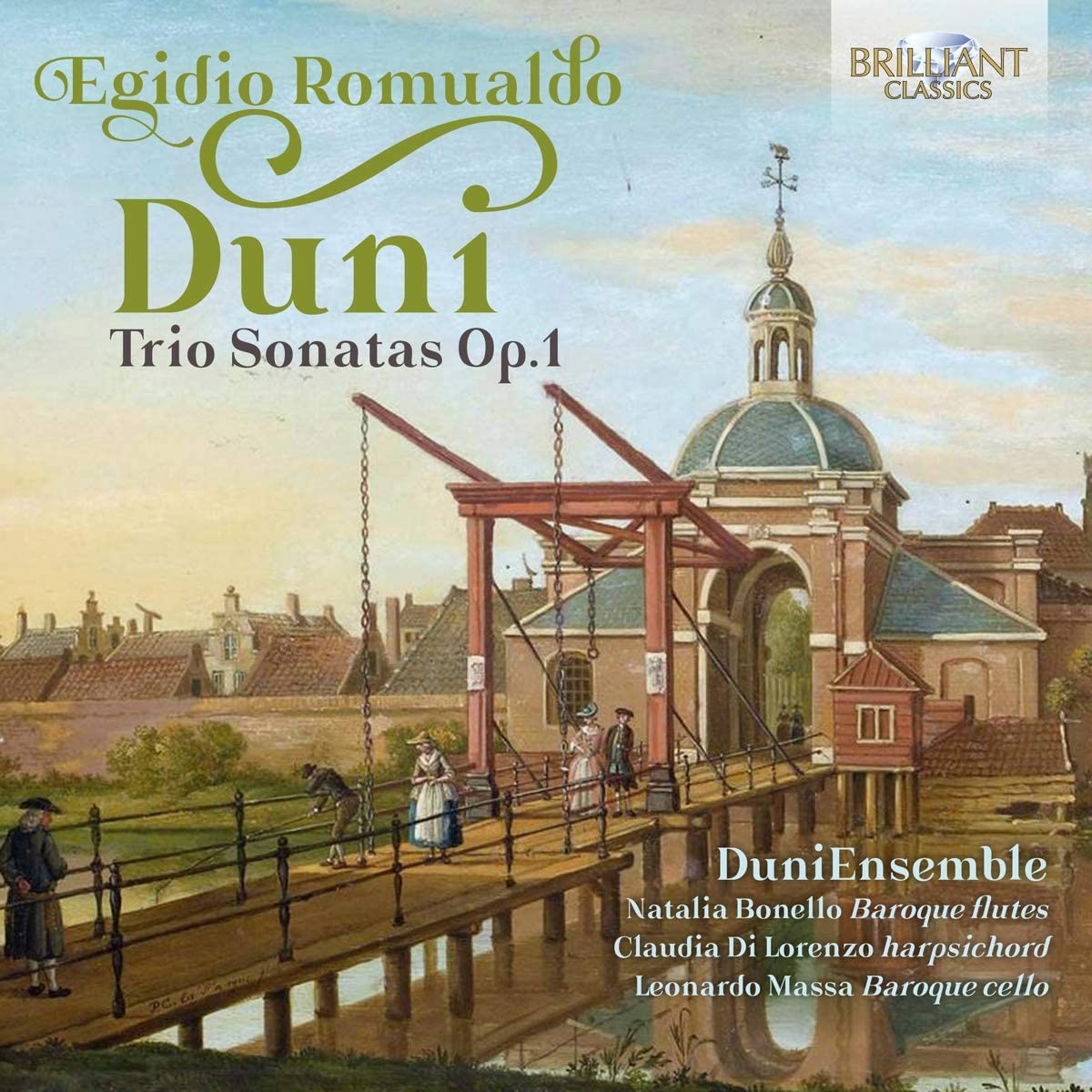Duni Ensemble
48:20
Brilliant Classics 96023
+Contradanze 1m 3m 4 + Minuetto 2, Minuè no 18 and Minuetto
Click HERE to buy this CD on amazon.co.uk
Neapolitan by birth, Egidio Romualdo Duni spent time in the great musical centres of the 18th century, Milan, Rome and London, before moving to Holland for reasons of health and to study at Leiden University and to publish two important collections, his opus 1 Trio Sonatas and Minuetti e Contradanze in 17838/9. The six trio sonatas are all performed here, interspersed with a number of the minuets and contradances. Where Duni had stipulated that his sonatas were for the standard ensemble of two violins, cello and continuo, the DuniEnsemble take a refreshing approach to this Galante music by using flutes and recorders for the melodic lines and a bassoon for the cello, occasionally employing Baroque violin and cello for contrast. The continuo group includes a harpsichord, a mandolin, and Baroque guitar/theorbo. The overall sound is very pleasing and nicely varied, allowing this complete recording of Duni’s opus 1 to benefit from an engaging degree of textural variety. It is perhaps unfortunate that the booklet information as to ‘who does what on what’ is a bit of a mess, and that the translation into English of the otherwise interesting programme is a little garbled – worth spending a little more on the printed material to support what is an excellent recording. The motivations behind Duni’s movements around Europe remain mysterious – he seems to have enjoyed considerable success wherever he went – his opera ‘Demofoonte’, staged in London in 1737, featured no less a figure than the great castrato Farinelli in his retirement performance. That his move from London to Holland seems to have been the result of depression, for which he was seeking help from the famous Dr Boherave, may hint at his failure to settle and to enjoy his success – perhaps the dog-eat-dog musical world of early 18th-century London just didn’t suit him. There is no hint of any dark moods in his published music; is it not trite or superficial either, but rather imaginative and original. And the DuniEnsemble, applying considerable musicality and inventiveness to his music, bring it vividly to life for us.
D. James Ross
